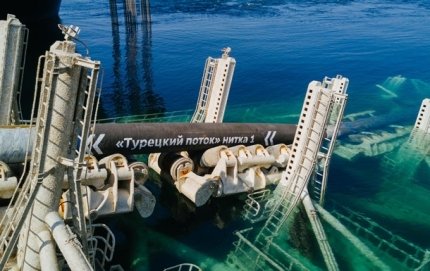Turkey supports Russia in partially returning to the EU gas market, which brings back the threat of European countries' dependence on Russian gas.
Points of attention
- Turkey's backing of Russia in the EU gas market raises concerns about European countries' dependence on Russian gas, posing threats to energy security.
- The Turkish Stream-2 pipeline facilitates the entry of Russian gas into the European market through Turkey, increasing EU countries' reliance on Russian fuel.
- The EU has the opportunity to enhance energy security by replacing Russian gas with LNG imports from other countries, thus reducing risks associated with monopoly and ensuring diversification.
- Turkey's support for strengthening Russian influence on the EU gas market may hinder the development of alternative energy sources in Europe.
- Rejecting Russian gas via Turkish Stream could promote energy diversification in the EU, safeguarding European countries from monopoly risks and fostering a more sustainable energy landscape.
How Turkey is helping Russia to return to the European gas market
The publication notes that last week Turkey announced a new gas project, so-called "Turkish Stream-2".
Turkish Energy Minister Alparslan Bayraktar said that the Turkish gas monopolist BOTAŞ will be able to supply the EU with about 7-8 billion cubic meters through Bulgaria to Central Europe under the name "Turkish mix", i.e. gas from various sources.
Nominally, this mixture will consist of 40% of Russian gas, but the share of blue fuel from the aggressor country may be much higher.
Journalists emphasize that Russian oil companies are already selling oil products to the EU through Turkey, India, Egypt and the United Arab Emirates.

Currently, Gazprom is secretly trying to maintain gas exports to the EU.
Although the EU already has a ban on deliveries of Russian liquefied gas through European ports to Asian countries, according to the authors of the article, the EU leadership can do more.
Russian gas still accounts for 15% of total EU gas imports, even overtaking US LNG supplies to Europe this year. Simply put, Europe now spends twice as much on Russian energy carriers as it does on aid to Ukraine, the publication says.
Why the EU should give up Russian gas
The authors of the publication call on the EU to stop the supply of Russian gas through the Turkish Stream.
According to the journalists of the publication, the EU's refusal of Russian gas will not lead to an energy crisis.
In particular, the share of Russian gas can be replaced by LNG supplies from other countries.
"Turkish Stream" not only facilitates further Russian gas exports, but also undermines European diversification by flooding the market with discounted gas. And this cheap Russian gas threatens domestic production projects in the Black Sea while delaying alternative LNG imports through terminals in Greece, Croatia and Poland, which creates the risk of creating non-performing assets - the publication emphasizes.



